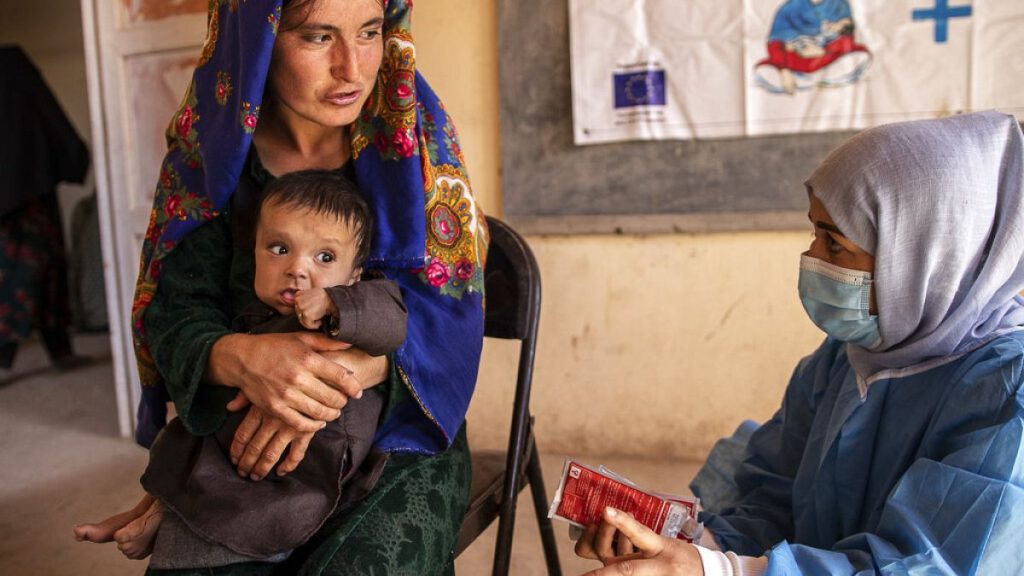The Taliban’s recent decree banning women from working in national and international non-governmental organizations (NGOs) marks a significant escalation in their systematic repression of women’s rights in Afghanistan. This directive, issued by the Ministry of Economy, mandates the cessation of all female employment within NGOs and threatens to revoke the operating licenses of organizations that fail to comply. This move follows a previous suspension of female NGO workers in December 2022, purportedly due to improper adherence to Islamic dress codes. The Taliban’s justification for these restrictions often centers on their interpretation of Islamic law, which they claim necessitates the segregation of genders and the limitation of women’s roles in public life. However, these policies have been widely condemned by international bodies and human rights organizations as a blatant violation of fundamental human rights and a devastating blow to Afghanistan’s already fragile humanitarian landscape.
The implications of this ban are far-reaching and deeply concerning. NGOs play a vital role in delivering essential services, including healthcare, education, and food aid, to millions of Afghans struggling amidst ongoing conflict, economic collapse, and natural disasters. Women constitute a significant portion of the NGO workforce, particularly in roles involving direct engagement with women and girls, who often face unique cultural and social barriers in accessing aid. Their exclusion effectively severs a crucial lifeline for vulnerable populations, hindering the provision of culturally sensitive services and further marginalizing women and girls within Afghan society. Moreover, the ban undermines the operational capacity of NGOs, forcing them to scale back programs or withdraw entirely, exacerbating the humanitarian crisis and creating a void in essential service delivery.
The Taliban’s actions are not isolated incidents but part of a broader pattern of restrictive policies aimed at controlling women’s participation in public life. Since their return to power in 2021, the Taliban have systematically dismantled women’s rights, barring them from most employment opportunities, excluding them from education beyond the sixth grade, and restricting their freedom of movement. These policies represent a regression to the harsh realities of the Taliban’s previous rule in the 1990s and have been met with international condemnation and calls for the Taliban to respect international human rights standards. The international community has largely refused to formally recognize the Taliban government, citing their human rights record, particularly their treatment of women and girls, as a major obstacle.
Adding to this disturbing trend, Taliban leader Hibatullah Akhundzada issued a decree mandating the obscuring of windows in buildings that offer a view of areas where women might be present. This directive, ostensibly aimed at enforcing gender segregation and preventing men from seeing women in private spaces, further restricts women’s freedom and reinforces the Taliban’s restrictive interpretation of Islamic law. The decree applies to both new and existing structures, requiring property owners to install walls, fences, or screens to block any view into yards or kitchens where women might be present. This measure exemplifies the Taliban’s intrusive approach to social control, extending their reach into the private sphere and further limiting women’s visibility and mobility.
The cumulative impact of these policies paints a grim picture for the future of women and girls in Afghanistan. Deprived of education, employment, and freedom of movement, Afghan women face increasing marginalization and vulnerability. The ban on female NGO workers not only restricts their economic opportunities but also denies them a vital platform for social engagement and empowerment. The international community faces a complex challenge in addressing this situation. While humanitarian assistance remains crucial, the Taliban’s restrictions on female aid workers create significant operational hurdles and raise ethical concerns. Balancing the need to provide aid with the imperative of upholding human rights principles requires careful consideration and a coordinated international response.
The international community must continue to pressure the Taliban to reverse these discriminatory policies and uphold their international obligations regarding human rights. This includes advocating for the full participation of women in Afghan society, ensuring access to education and employment, and protecting their fundamental freedoms. Furthermore, it is essential to support Afghan women’s organizations and human rights defenders who are working tirelessly to document abuses and advocate for change. The future of Afghanistan depends on the full and equal participation of all its citizens, and the international community must remain steadfast in its commitment to supporting the rights and aspirations of Afghan women and girls.














